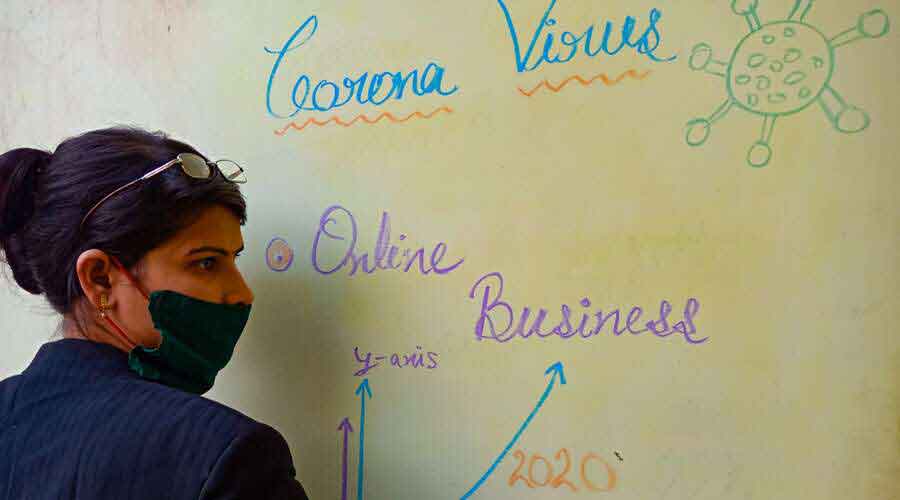Teachers have to make “extra efforts” to help students who were denied access to education because of the digital divide to make up for what they have missed out on over the past two years, speakers said at an education symposium presented by Anandabazar Patrika and The Telegraph.
Sujata Sen, chief executive officer of Future Hope, whose organisation is among those that played a key role in ensuring that many less privileged children did not get tossed out of the education system during the Covid pandemic, said the teachers now have to hold remedial classes and mentoring sessions and also take care of the mental health of these children so the learning deficiencies could be plugged and their emotional needs addressed.
Cardiac surgeon Kunal Sarkar said educators must join hands so the students who were among the worst sufferers during the pandemic could be made “relevant to the functional life of the country”. Sunday’s education symposium discussed three key topics:
- The future of education and the digital divide
- How geared are the new universities with beautiful campuses to win the trust of students
- How a student should cope with the post-pandemic changes in the classroom and outside
Sen, while speaking at the session titled “The future of education and the digital divide”, said the “minuscule percentage of students” from elite schools who had unhindered access to online education was not going to solve the problems of the country alone. “Educators have to address the concerns of the deprived lot.”
“The crisis may not be so deep for the students of the elite school. But is the minuscule percentage of our children who had a good education, going to solve the problems of our country?…. We need to help at least one child who has been denied education over the want of the device,” said Sen.
“As teachers, you have this unique and important position to do so as we have failing values and failing leadership all over the world.”
Asked how teachers could help, Sen later told The Telegraph: “There is a need for planning to see that not only they catch up, but also get on track by taking remedial classes, revisional classes, extra classes, so the learning gaps could be addressed. There is a need for career counselling and mentoring. Teachers now have added responsibilities.”
Bratati Bhattacharya, secretary general, Shikshayatan Foundation, spoke of the need for empathy among teachers. “A teacher needs to understand and empathise with students for the changes they have gone through over the past two years so they can cope with.”
Economist Abhijit Vinayak Banerjee had in February said the absence of in-person classes for almost two years left many children lagging in terms of learning and that teachers should begin from where the students are stuck instead of only focusing on the syllabus. He made the statement at the release of the Annual Status of Education Report (ASER) 2021 for rural Bengal.
Cardiac surgeon Sarkar while speaking at the session titled “How a student should cope with the post-pandemic changes in the classroom and outside”, said there was a need to get out of inertia and “make the young minds, the pre-school, the midschool, the high school, the university student, relevant, important and vibrant parts of the functional life of this country”.
“We need an army of educators for this,” said Sarkar. Saikat Maitra, vice-chancellor of the Maulana Abul Kalam Azad University of Technology, said the pandemic had taught institutions that digital and physical education could supplement each other. “We have to embrace this digital education in the best possible way so education becomes affordable to all,” said Maitra.
